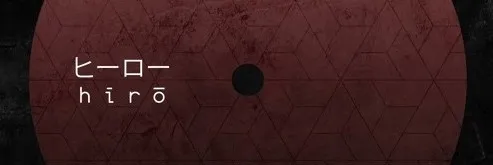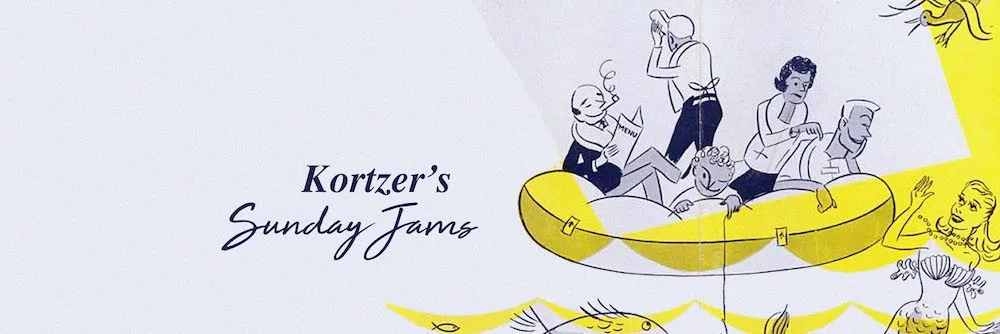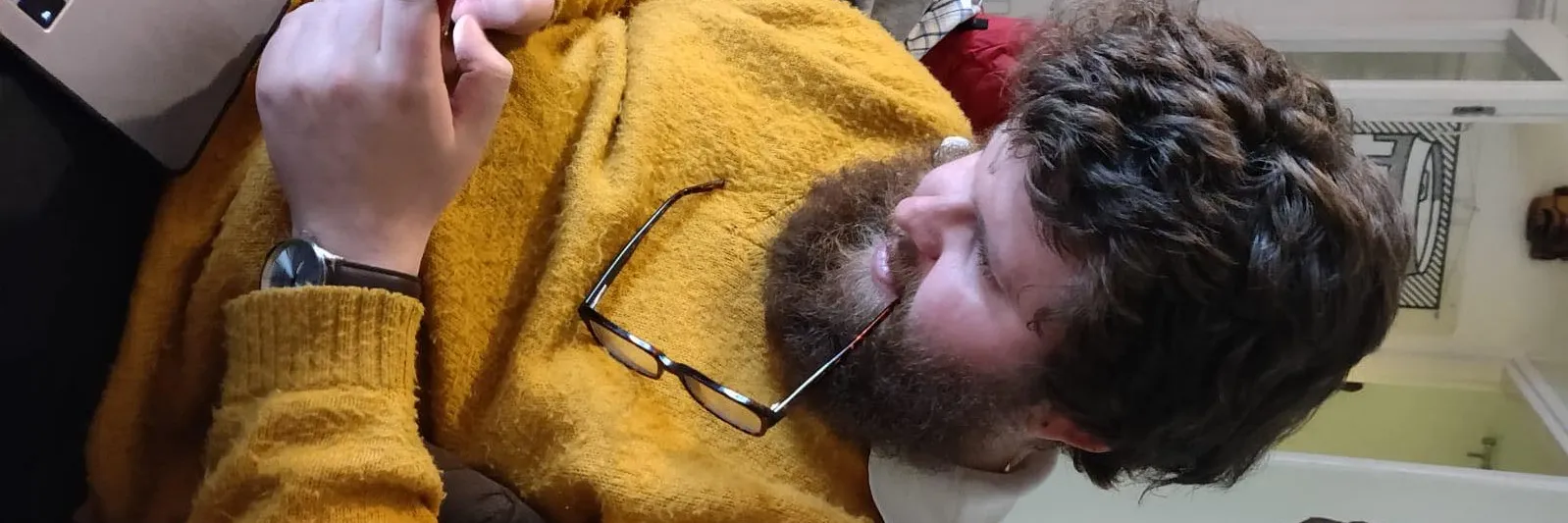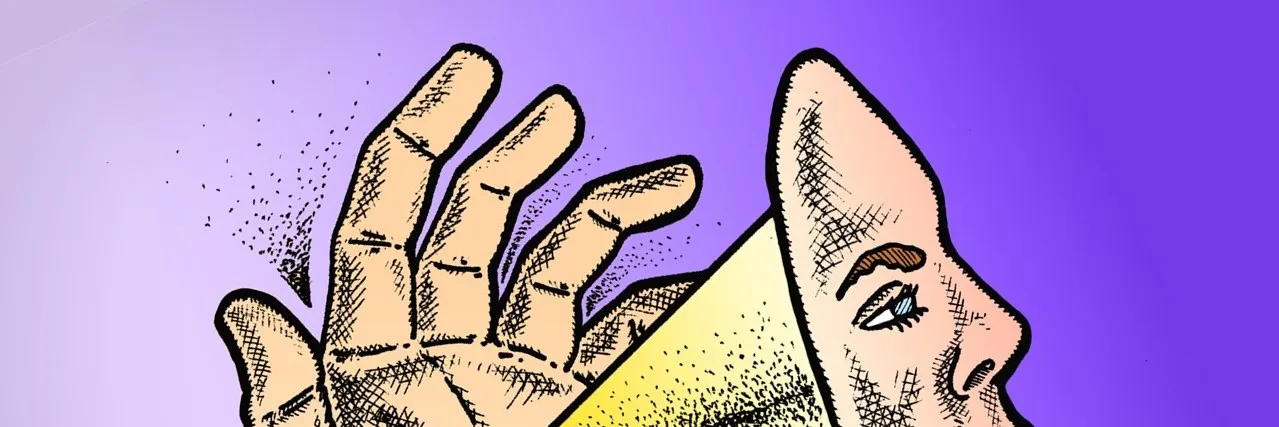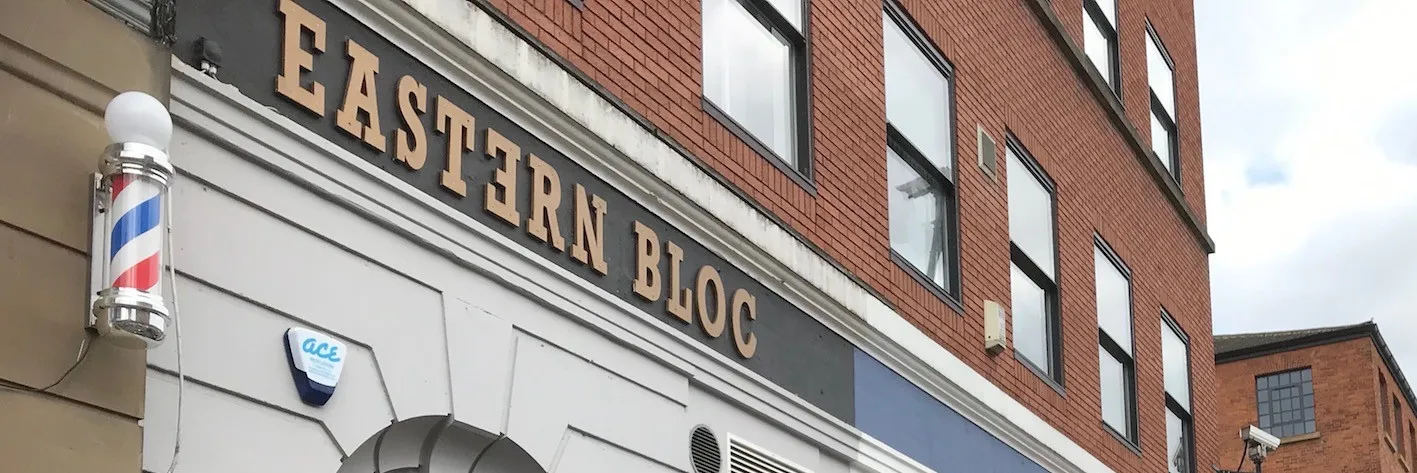 People overuse words far too much. Maybe it’s a result of our disposable and insincere culture. Maybe not. Either way, we regularly overlook real meanings in a desperate clamour for attention-grabbing sentences.
People overuse words far too much. Maybe it’s a result of our disposable and insincere culture. Maybe not. Either way, we regularly overlook real meanings in a desperate clamour for attention-grabbing sentences.
Having said that, few would deny Manchester’s Eastern Bloc is what you’d call a ‘bonafide institution’.Its roots can be traced back from the location today, on the resurgent Stephenson Square (now brimming with bars and eateries, once all-but-forgotten) to a unit in famed alternative shopping Mecca Afflex Palace, via a lengthy spell on nearby Oldham Street.
Born in 1985, if walls could talk, you’d have to work out which to ask before sitting down to indulge in a single chapter of this illustrious history.
As the nineties caved to the noughties, Jim Spratling first found himself in the employ of this record emporium. The man also known as Bane (to anyone with an ear and eye on the UK dnb and jungle scenes), in 2019 he’s the shop manager, overseeing an operation that now has not one but three distinct arms. He also recently set up Contrast MCR, unrelated to the store, the agency connects respected club DJs with bars and other non-club venues.
Back to the shop, and by day visitors find a chilled ground floor coffee bar serving quality food and booze, while upstairs, from where the kick drums emanate, expert vinyl pushers like Ben Marsden— AKA acclaimed technoist Means&3rd— hand pick prime cuts for hungry hunters.
After dark the doors stay open, tables are shifted, and the tunes turned up. Visiting labels, bonafide DJ dignitaries and rising upstarts alike are invited to play by events chief, Kerrie. 2018 saw the likes of CPU, Mannequin, Whities and Loose Lips seize control of the premises. Even in winter things have a habit of getting incredibly sweaty and wonderfully messy, front windows steaming over to hide the chaos within. But don’t take our word for it. “Topless, hot yoga sauna dancing,” Spratling says of the nocturnal vibe.
“Topless, hot yoga sauna dancing,” Spratling says of the nocturnal vibe.
“There was myself, Andro from the celebrity boy band AnD— the celebrity techno boy band— and John [Berry]. And John’s mate, Andy, who helped out for a bit,” he recalls the core team at the time a decision was made to vacate the old site, move to the current address and branch out to become more than simply a place to splash cash on wax.“We had help from other people, too many to mention, and support from friends and family with the refurb. But it was just the three of us really. We had this lock up in Cheetham Hill, and for a while no shop. So I was going back and forth up there to try and compile stock lists, do returns with distributors. The idea was to completely start afresh once we opened in this place.”So far as transitions go it’s one of the more remarkable on any high street. The friendly but serious vibe of the former address, and staff penchant for the tougher ends of the dance spectrum, starkly contrast mochas, lattes and homemade soups.“Yeah, so while all that was happening we were trying to get the cafe up and running. John’s reading loads of Ottolenghi books, giving birth to JB Oliver. Basically he’s gone from mixing techno to mixing cake ingredients, and now makes a mean pecan pie. He’s massively responsible for the shop’s diversification.”Walking into Eastern Bloc in the afternoon and the idea is clearly working. A steady stream of faces pass through the door while we’re talking. Some are here for a bite, others beats, one rowdy crew are already in Friday warm up mode at the bar. A good number are regulars who know the staff well. Despite this success, though, the change of identity wasn’t exactly seamless to begin with.“It was massively stressful,” Spratling admits. “Trying to sell someone the latest underground jungle record in between making a ham and cheese toastie, you know what I mean? Smoothies, cappuccino, now we’ve reached a point where everyone has their own section. It has taken five years to get here, though. But we have a great team, good chefs, bar tenders, baristas. You know?
“It was essential, we had to change,” he continues. “There’s no way anyone can survive on record sales alone. You have to mention people like Juno, Red Eye, who are pure online sales. But that’s completely different. We are a physical shop with a lot of different bills to pay.” Spratling is quick to point out that Eastern Bloc’s online counterparts have achieved plenty in their own way. Maintaining a huge website isn’t cheap, and their move from largely physical sales online to mainly digital format sales shows adaptability and vision. And both web and bricks-and-mortar record stores have the same fundamental problem; an overwhelming amount of great new tunes with limited resources.
Spratling is quick to point out that Eastern Bloc’s online counterparts have achieved plenty in their own way. Maintaining a huge website isn’t cheap, and their move from largely physical sales online to mainly digital format sales shows adaptability and vision. And both web and bricks-and-mortar record stores have the same fundamental problem; an overwhelming amount of great new tunes with limited resources.
“It’s difficult because more than ever there is so much quality music being made. So it’s so hard as a buyer to rule things out. It happened today with this guy… … He came in with some really, really good records but we only took six copies of one. The other B-sides were too experimental, I couldn’t take the risk.“It’s horrible, because you want to take risks so when customers come in they have a vast selection to pick from but stuff that is too experimental people just won’t buy. That one customer who comes in once in a blue moon might.”We broach the idea that online stores might actually find it tougher to introduce people to quality obscurities because websites offer such vast catalogues, with many items only available to hear as snippets. As a shopper, how do you dig through this? In contrast, going to a store in person could make the process easier.
“We are heavy on recommendations,” Spratling responds. “And we’re not selling cars, trying to sell for a quick profit. We want to sell you records you are going to play for years. Someone comes in and lets us know what they are into we’re going to go A-Z and find stuff that suits. It’s why people come back.”
When asked for examples of music that relies on personal recommendations Spratling gives a hefty nod to Kawuku Sound’s self-titled album on Cervo’s Banana Hill, a label and party originating in Sheffield, since moving monthlies to Manchester’s Soup Kitchen. Packing global rhythms that somehow span dnb, techno, hip hop, jazz and— for want of a less painful label— world music, it’s exactly the kind of business digital algorithms wouldn’t suggest because automation advises you what to buy based on the genres in your purchase history, and the purchase history of others who bought an item you just bought. Subtle nuances in the music itself don’t often factor.
As much as Eastern Bloc, and other shops like it, can help divert shoppers and introduce them to new ideas and tones, the same can be said for those who work in the shops themselves. To get the job in the first place they would have to be knowledgeable, but relentless exposure to tracks of all shapes, sizes, and resonance while at work guarantees their own tastes will expand.“Working at Eastern Bloc has totally shaped my record collection,” Spratling says. “Before I worked here I was really not that into four four kick drums. I just thought they were really obvious, every dance tune does it and that’s why I like breakbeats, jungle. Then working here I quickly realised there’s so much more to it. I still think a lot of house and techno is very much built for somebody’s DJ set, and technically it is, but there’s so much good house and techno out there.”Despite the quantity of quality currently being released, even the bluntest knife in the drawer knows the apparent vinyl renaissance is slightly overblown. An ICM poll for the BBC in 2016 (the most recent relevant study we could find) suggested 41% of UK vinyl buyers don’t even use their turntable, and 7% don’t own a record player at all. The reality being that specialist record shops still have to work incredibly hard to survive. Nevertheless, right now is a special time at Eastern Bloc.
Written by Martin Guttridge-Hewitt
← Back to blog